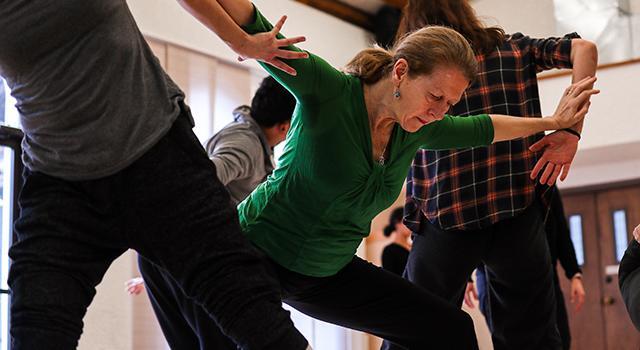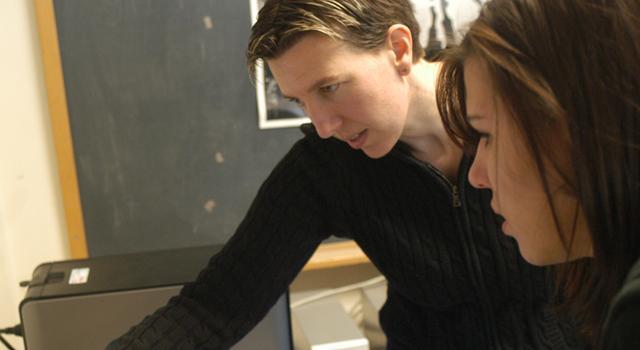Psychoanalytic Studies
Students can explore psychoanalysis in its clinical traditions as well as contemporary forms, and are encouraged to elaborate their psychological interests and questions in relation to philosophy, creative writing, theater, literature, and the arts. Students become acquainted with a complex, controversial, and changing field through coursework; build a portfolio of work across courses; and can choose to pursue a final thesis capstone project directed by a committee in psychoanalytic studies.
Student Project Titles
- Analysis, Improvisation, and Performance
- Art, Death, Psychoanalysis
- "Beyond the Phallus": Opening(s) to Feminine Discourse
- Comparing Understanding and Views of Efficacy of Cognitive Behavioral Therapy (CBT) to Psychoanalysis
- Confronting the Elusive: The Development and Management of a New Theater through the Lens of Lacanian Psychoanlysis
- Crisis of Masculinity at the End of Ideology: Lacanian Approaches to the Aleinikov Brothers' Parallel Cinema
- The Law of Dostoevsky
- The Resounding Unknowable - Lacanian Perspectives on Sonic Aesthetics
- The Symptom in Lacanian Psychoanalytic Theory and Practice
- Three Views of the Symptom: From Freud and Lacan to Cognitive Behavioral Therapy
Sample Course
Literature and Psychoanalysis
This course examines the relationship between psychoanalysis and literature by focusing on Freud's concept of the "uncanny" as it appears in his famous essay of the same name, and as it emerges in literary examples in the nineteenth and twentieth century. Freud himself drew on the work of E.T.A. Hoffman, whose "Sandman" features mysterious strangers, a mechanical doll, family romance, and madness. In the course of the semester, literary texts may include Hoffman's story, "The Sandman," Dostoevsky's The Double, E.A. Poe's Collected Stories, Henry James's "The Turn of the Screw" and The Bloody Chamber by Angela Carter. In addition, we will examine the aesthetic categories related to the uncanny, such as the grotesque, the horrific, and the abject and trace the development of genres such as the Gothic and the ghost story in literature and film.
Sample Courses at Hampshire
- Advanced Topics in Psychoanalytic Theory and Practice
- Critical Theory Seminar: Psychoanalytic Theory and Criticism
- Disturbing Desire: Proust, Woolf, and Lacan
- Fictions of Childhood
- Joyce and Lacan: An Introduction
- Literature and Psychoanalysis
- Meeting Lacan: On the Couch, Through the Arts and On the Farm
- Nietzsche, Freud, and Lou-Andreas Salome
- Psychoanalytic Case Studies: Childhood and Adolescence
- Psychological Dynamics in Theater
Through the Consortium
- Foundations of Contemporary Literary Criticism (SC)
- Literature and Psychoanalysis (AC)
- Psychoanalysis and Law (AC)
- Reading Psychoanalysis (AC)
Facilities and Resources
Pep-Web
Hampshire College has many library resources on psychoanalysis, including a database of psychoanalytic journals. Psychological Electronic Publishing, a fully searchable digital archive, contains the full text of the Standard Edition of the Complete Psychological Works of Sigmund Freud and the full text of eighteen premier journals in psychoanalysis. There are over 50,000 articles (with over seventy million words) and 4,000 figures and illustrations that originally resided in more than 400 volumes with a total of 250,000 printed pages.



